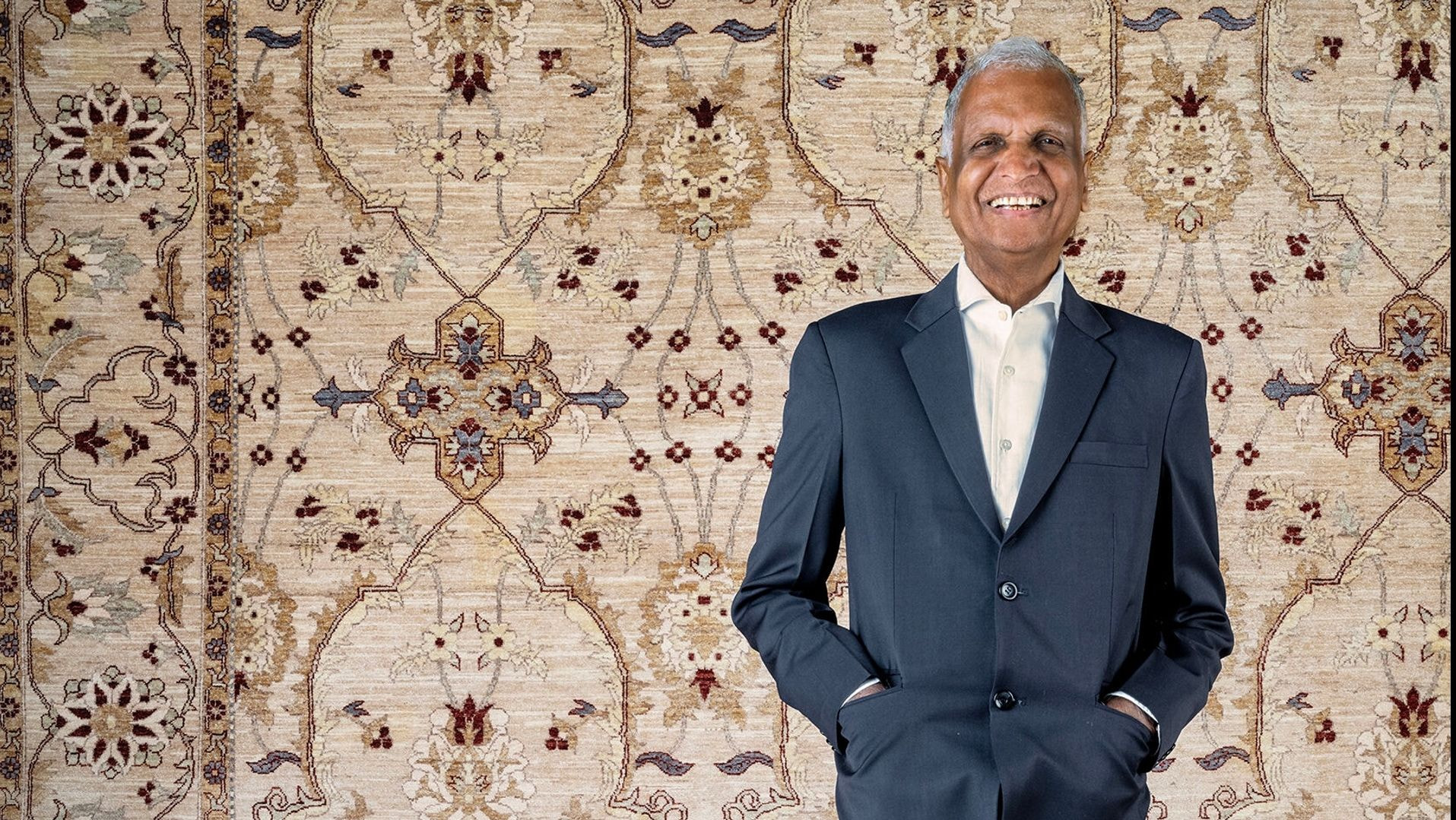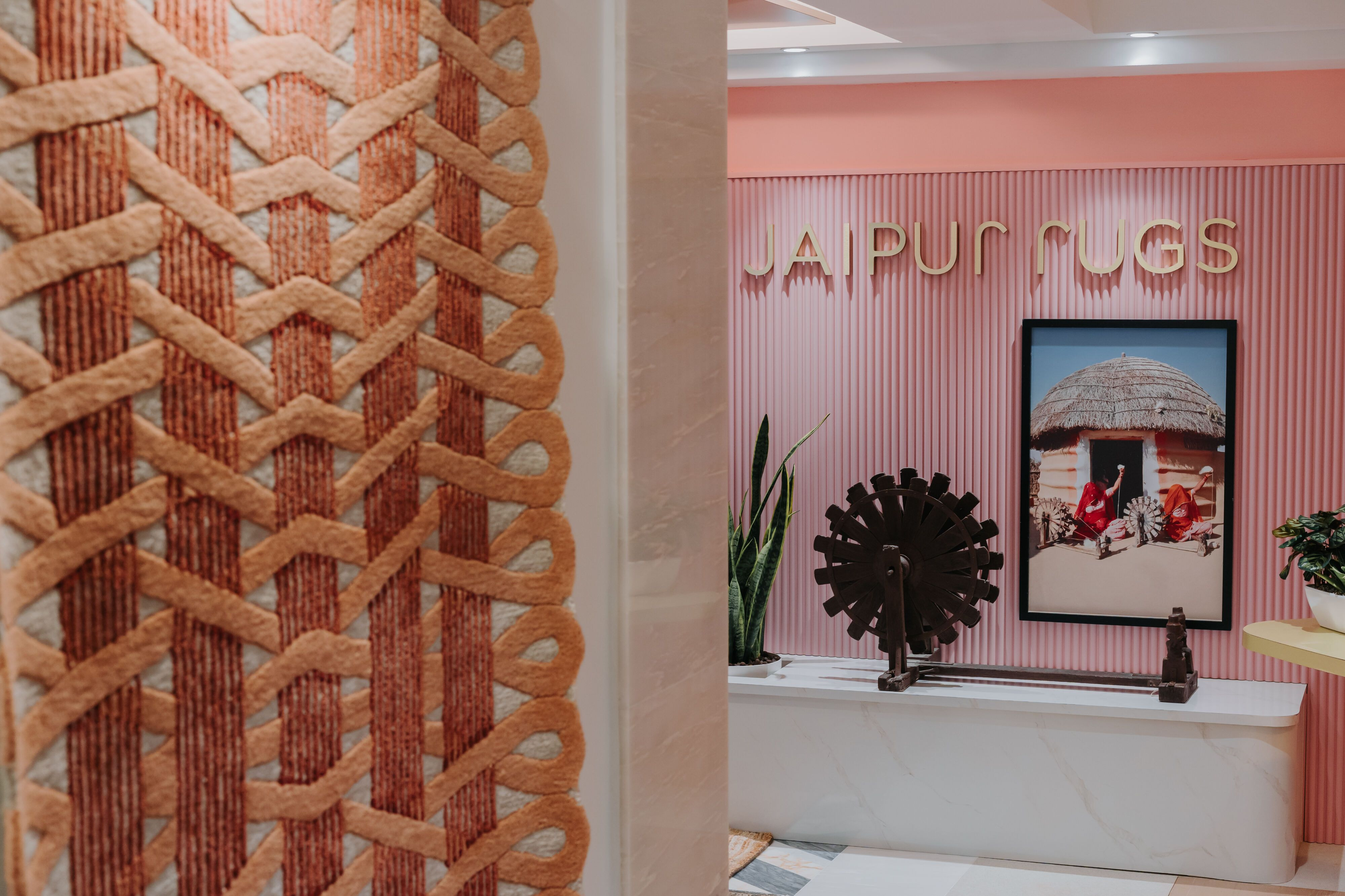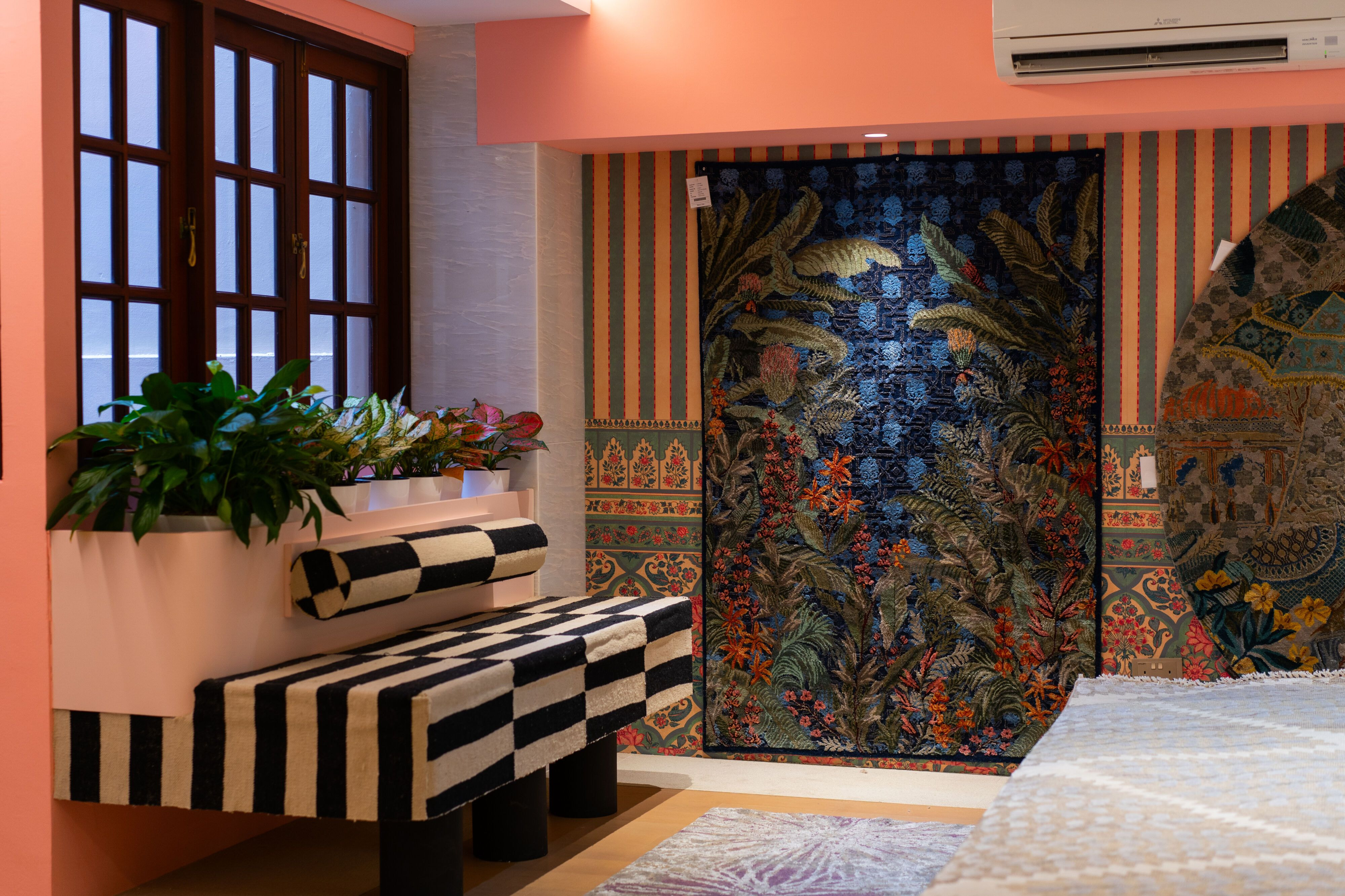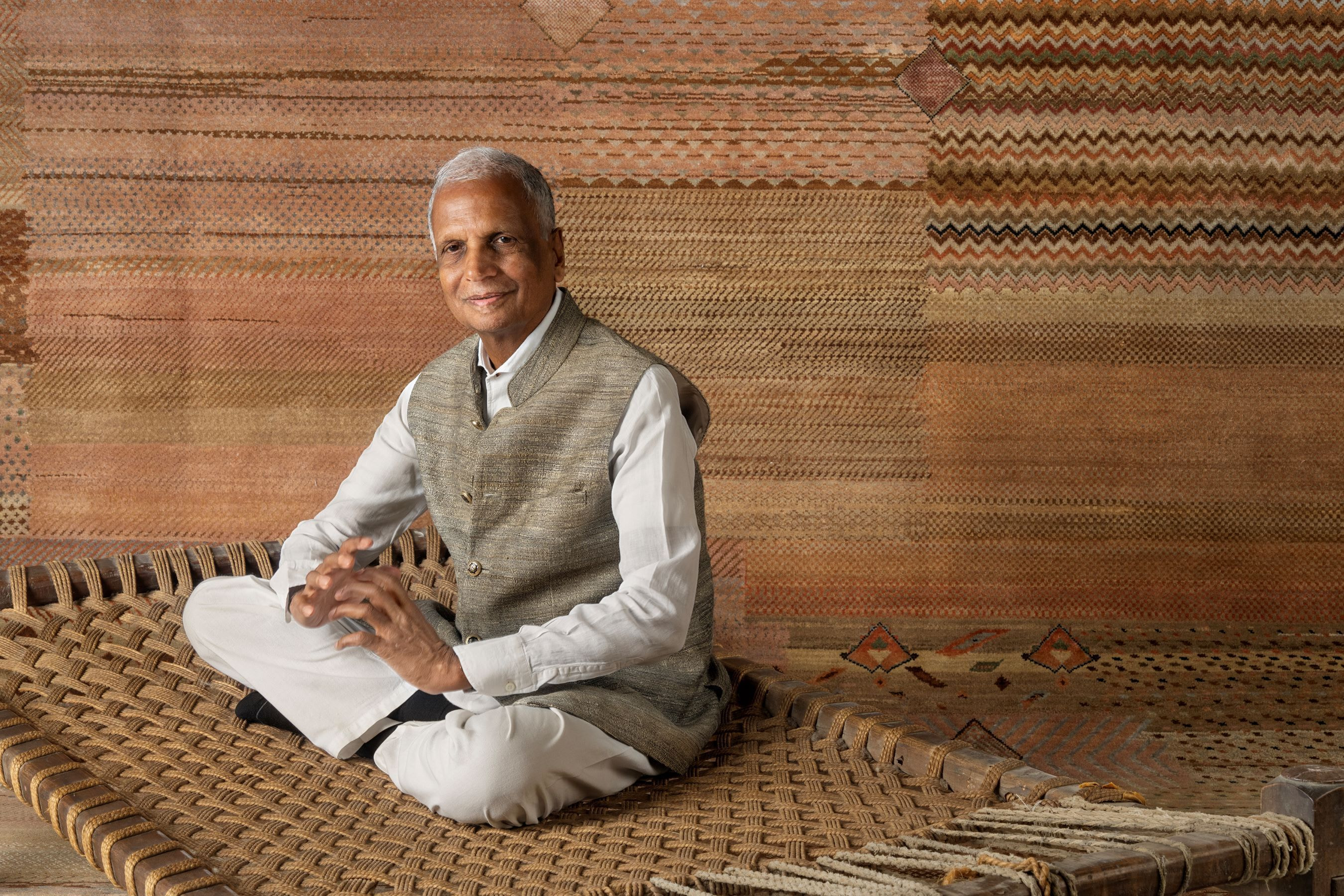30.10.2024
Nand Kishore Chaudhary of Jaipur Rugs: Revolutionizing luxury with artisanship and social impact
Discover how Jaipur Rugs, led by Nand Kishore Chaudhary, redefines luxury by empowering over 40,000 artisans across India. Learn how this pioneering brand blends traditional craftsmanship with innovative, sustainable practices, impacting lives and creating world-class hand-knotted rugs.

By GC Editor
Photos courtesy of Jaipur Rugs.
In the heart of Rajasthan, India, where ancient craft traditions run as deep as the desert sands, one man dared to challenge a centuries-old industry with nothing but nine artisans and an unwavering belief in human dignity. Nand Kishore Chaudhary, fondly known as the "Gandhi of the Carpet Industry," has transformed what began as two humble looms in 1978 into Jaipur Rugs, an international phenomenon that has redefined luxury through the lens of social impact.
Today, his empire spans more than 60 countries, 600 villages, employing over 40,000 artisans—90% of them women who weave not just rugs, but stories of empowerment from their own homes. By eliminating middlemen and paying above-market wages, Chaudhary hasn't just built a business; he's orchestrated a quiet revolution in an industry once notorious for exploitation. Each hand-knotted masterpiece that emerges from this network carries with it the dreams, dignity, and determination of its creators, proving that true luxury lies not just in the finished product, but in the hands that craft it.
In an age where corporate success often comes at the cost of social responsibility, Chaudhary's vision stands as a testament to the power of conscious capitalism. From sustainable practices through the innovative Manchaha Collection to providing dignity through craft to prison inmates, Jaipur Rugs exemplifies how tradition can meet innovation to create not just beautiful products, but beautiful lives.
In this exclusive interview, GC gets up close & personal with the man himself, to further understand his ethos, vision, and values in managing this multi-national family business.



Following a millennial tradition coming from Persia, weavers sit down at the loom and spend up to one year hand-knotting their patterns, line after line, with a meticulous attention to detail.



